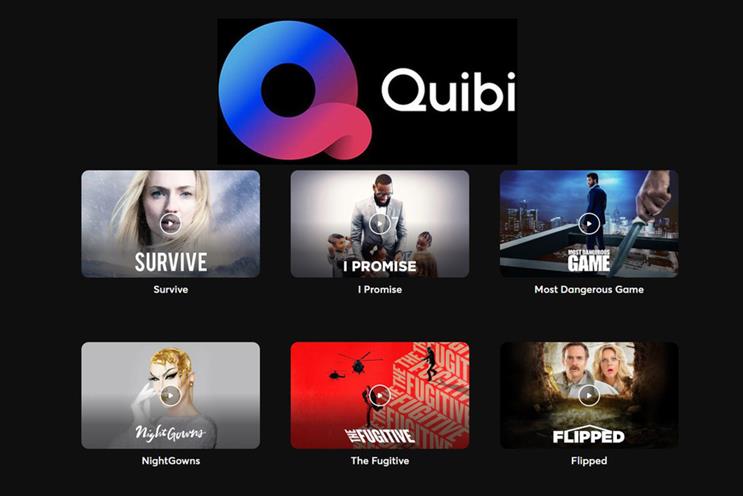When Quibi – the all-new mobile-only streaming platform that launched today – put its ad inventory on the market in October 2019, it’s unlikely that founder Jeffrey Katzenberg and his team imagined they’d be launching in the middle of a global pandemic. Clearly, it wasn’t a consideration for brands either, given the ad space sold out in an instant.
But while Covid-19 has put everything else in a state of flux, these market conditions might not break the platform – they could very well be the making of it. Mobile’s non-stop growth when it comes to content consumption shows no signs of abating. And now that phones are our primary means of connecting with the outside world – whether it’s through Houseparty gatherings, #stayathomechallenge TikToks or the latest dodgy memes – what better time to launch a mobile-first platform?
Of course, there’s always a flip side – one of them being that most consumers are no longer "on the go". While these "quick bites" of content could technically be squeezed into our new-found commutes to our living rooms, don’t forget that Quibi is launching at a time when its target audience has unprecedented access to their TV sets. Many have flocked to Disney+, which narrowly pipped Quibi to launch first.
These market conditions aren’t the only thing differentiating the launch of Quibi to its competitors. Its content is exclusively for mobile, alternates between portrait and landscape modes, and is contextually triggered by real-time data environments. Oh, and alongside the monthly subscription fee, it plans to run ad content too – a move that could be risky, given of Netflix subscribers say they’d rather unsubscribe than watch ads.
With all of this in mind, there are several things that prospective advertisers need to be wary of when, and if, Quibi’s next round of inventory becomes available. One of them being: will the content actually be any good? Sure – the likes of Steven Spielberg are on the platform’s roster but, to date, Hollywood has preferred to point its talent at long-form content. In fact, the most popular mobile content has historically been home-grown, with platforms such as YouTube, Twitter and TikTok giving rise to content made from bedrooms and living rooms the world over.
So, by launching now, Quibi needs to ensure its content is worth riding out "lockdown life" with. And then, perhaps, the platform will achieve its ambition to ape Spotify. If it can curate the best of mobile-focused short-form content, why wouldn’t consumers pay for content that was previously free?
When it comes to advertising, brands will need to think strategically about how their ads can fully realise the potential of the channel and ensure that they’re enriching an experience the customer is paying for. The channel’s portrait mode would be a good place to start, and while portrait ads are nothing new, the fact that Quibi content can be viewed in either orientation means that brands can think creatively about how their ads render both ways and diversify the content that’s seen in each field of view.
There’s also an opportunity for brands to flex their creative muscles and tap into Quibi’s contextual triggered capabilities, such as a drinks brand altering its creative to match the weather, location and time of day for each and every viewer. Media firsts will be a big part of how Quibi promotes itself to advertisers initially
But after the novelty has worn off, given the short length and high frequency of Quibi’s "quick bites", brands will need to carefully consider how an overall campaign slots together, carefully avoiding oversaturating the platform with branded content. If you’ve only tuned in to watch seven minutes of content, do you really want to waste any of it watching ads? Down the line, Quibi might be wise to rethink the channel as more of a sponsorship platform or turn to targeted programmatic product placement as a better means of content monetisation.
Whenever we all get to leave the confines of our homes, it’s the experiences of isolation, and the new ways we learned to entertain ourselves, that will stick with us for many years to come. Maybe you picked up your kids’ Fortnite habit or rewatched Game of Thrones back to back twice – so who’s to say we couldn’t be discovering content on Quibi? The platform has an unprecedented opportunity to engage a nation eager for entertainment, but the "binge-worthiness" of the content and the approach of advertisers will be integral.
The moguls backing Quibi must rise to the challenge. Because, while some people may emerge from isolation having learned a new language or musical instrument, tthe lockdown could also provide an opportunity to change the way we watch video content from here on out.
Ben Bilboul is chief executive of Karmarama



